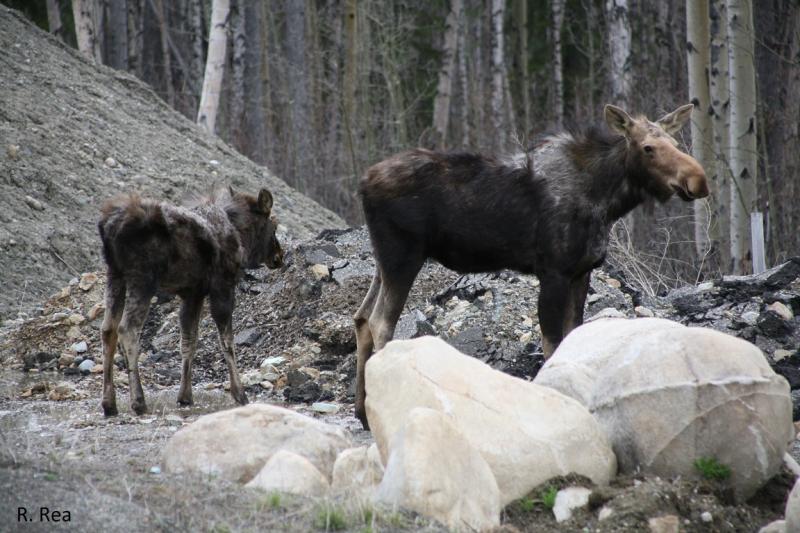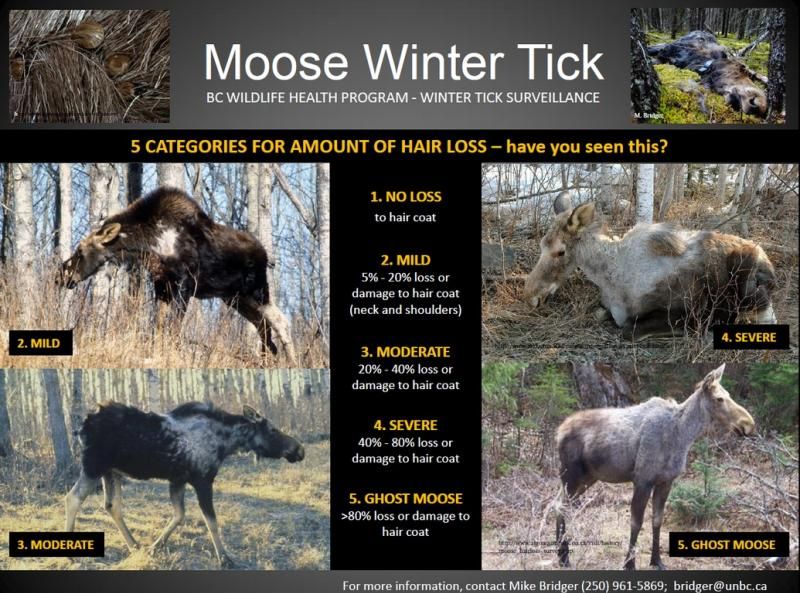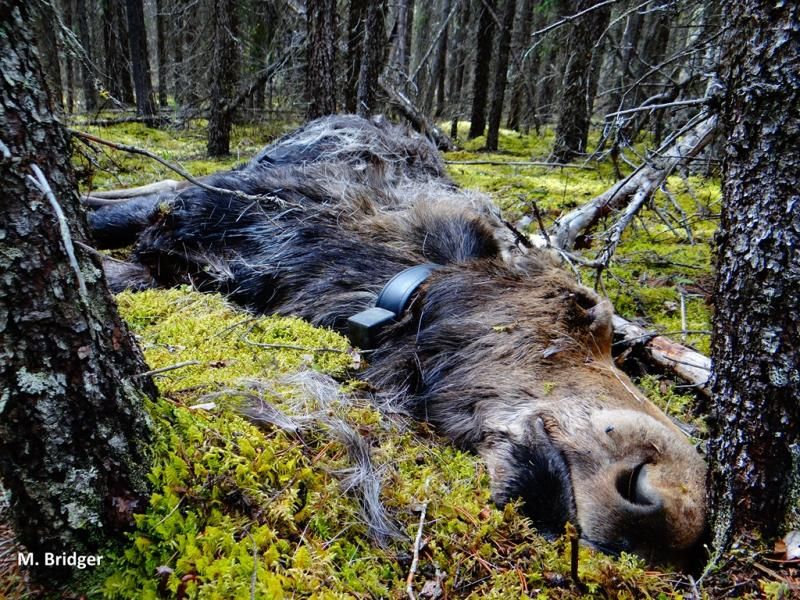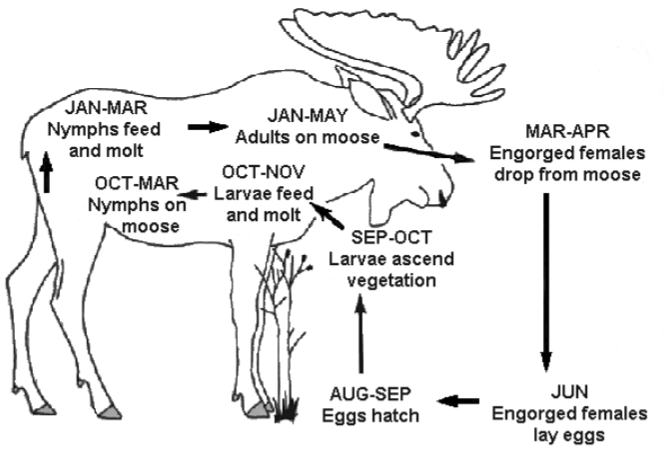*** Please see Page 2 for an update on the 2016 Winter Tick Surveillance Program ***
Hey everyone,
On behalf of the BC Wildlife Branch and the BC Wildlife Health Program, I'd like to introduce you to the Provincial Moose Winter Tick Surveillance Program. This is a great opportunity for you, as hunters, to get involved in the research of moose in our great province.
BC Moose Winter Tick Surveillance Program
The BC Wildlife Health Program is looking for help from the public with observations of hair loss caused by “Winter Ticks” on moose throughout the province. The Moose Winter Tick Surveillance Program wants to collect observations to monitor the number of animals with hairloss and the amount of hairloss on each animal to estimate winter tick prevalence and distribution. This program will occur on an annual basis, starting this winter. Winter ticks are a significant parasite for moose populations and can contribute to moose declines in parts of their range, including BC. So, it is an important health factor to monitor, particularly with climate change and alterations to moose habitat. The findings of the surveillance program will contribute to the Provincial Moose Research Program, which was initiated in 2013 to investigate factors influencing moose populations in BC.
Winter tick infestations can be observed on moose during February through April. The ticks spend the entire winter on one moose and there can be as many as 10s of thousands on one individual. As the female ticks become adults they feed on blood in late winter and the irritation causes moose to scratch and groom themselves excessively, resulting in hair loss. The extent of the hair loss is a rough indicator of how many ticks are present and can be observed easily from a distance. We know that tick infestations can result in behavioural changes or direct health impacts that may reduce moose survival.
If you are interested in contributing to this surveillance program by recording your observations of both healthy and infected moose during the winter and spring, please respond to the contact information below. You will be sent a simple survey that will allow you to document the extent of hair loss, if any, occurring in moose that you see. The survey can be delivered to you in paper form, electronically via email, or through a form that can be completed on your iPhone or iPad.
For more information, or to receive a survey, please contact:
Mike Bridger
Email: bridger@unbc.ca
Telephone: 250-961-5869
Or, you can send me a Private Message on this site. I will check periodically.






 Reply With Quote
Reply With Quote








